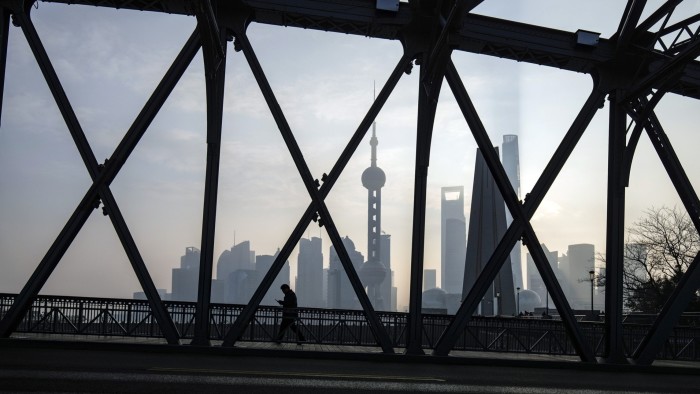Unlock the Editor’s Digest for free
Roula Khalaf, Editor of the FT, selects her favourite stories in this weekly newsletter.
The writer is a fellow at the Asia Society Policy Institute’s Center for China Analysis
In recent months, a grim pattern has emerged in China’s business pages: the names of once-vibrant entrepreneurs appearing not in company profiles but in obituaries. Men in the prime of their careers have leapt from rooftops, leaving industries and communities stunned. Their deaths — four in the past three months — have been explained, accurately, as mental health tragedies. But that narrative sidesteps something else: China’s entrepreneurial spirit is under extraordinary strain when it is needed most.
The wave of suicides comes against the backdrop of a more hostile macroeconomic environment. Entire sectors, most visibly real estate, have shifted from expansion to painful contraction. Once-stable revenue streams have vanished; once-safe bets have soured. The old growth model, driven by property, infrastructure and cheap labour, has reached its limits. Xi Jinping is pressing ahead with what he calls a “high-quality” growth path, with tech in the lead. The next phase will demand exactly what China’s private entrepreneurs have long supplied — relentless innovation, unyielding drive and an ability to spot and seize emerging markets. Chinese entrepreneurs have always faced cycles of risk and reward, but now a single regulatory investigation, a shift in local political winds, or a liquidity squeeze can turn a challenging quarter into an existential threat.
Xi is fond of declaring that private enterprise is indispensable, and the numbers show it: the private sector contributes over half of tax revenues, more than 60 per cent of GDP, over 70 per cent of innovations, 80 per cent of urban jobs, and 90 per cent of registered companies. Despite this outsized contribution, the lived reality for many entrepreneurs is one of precarious privilege.
They may command wealth and influence now, but their long-term position is far from secure. The life cycle of a Chinese private firm is notoriously short, less than four years for SMEs, compared with eight in the US and more than twelve in Japan. And when a business fails, there is often no institutionalised way to shield the founder from total financial and reputational ruin.
Beijing recently moved to reassure the private sector by enacting the Law on Promoting the Private Economy. Compared with a few years ago, when “common prosperity” was the watchword, sweeping regulatory crackdowns were roiling entire sectors, and slogans like jie fu ji pin (“rob the rich to aid the poor”) were gaining currency, such codification carries undeniable symbolic weight. With US-China rivalry now decisively about technology, shoring up private-sector ingenuity is essential — Beijing’s best, and perhaps only, sustainable source of power.
But that is not enough. Entrepreneurs need tangible, enforceable protections: fair access to credit; and legal frameworks that allow businesses to fail without destroying their founders’ lives. This is not about shielding the incompetent or the corrupt; it is about ensuring that risk-takers can survive to try again. If those with vision and courage cannot count on fair treatment and a dignified departure when things go wrong, the rational choice is to avoid risk entirely. That would mark the true end of the China miracle and create political risks that Beijing cannot bear.
The legal framework required is clear: establish a national personal bankruptcy regime that allows honest but insolvent business owners to discharge debts while retaining essential assets, enabling them to restart their careers; limit personal guarantees for corporate loans, particularly for SMEs, to prevent the automatic conflation of business and personal liability.
Beijing must ensure transparent, predictable regulation, so enforcement actions are guided by clear rules rather than shifting political imperatives. It should strengthen due process protections for those under investigation, avoiding prolonged uncertainty that can be as damaging as a formal penalty.
Chinese leaders must treat entrepreneurs as partners in shaping the country’s future, not as expendable instruments of growth, and enforce that principle by fundamentally rewiring bureaucratic reward structures. Laws on paper go only so far; in China, the political motives that guide bureaucrats ultimately decide enforcement. China’s economic stewardship will be judged not only by how it rewards success but also by the justice it affords in failure. If those with influence and resources cannot secure a fair hearing, due process, or a dignified way to start again, what chance does the average citizen have?
